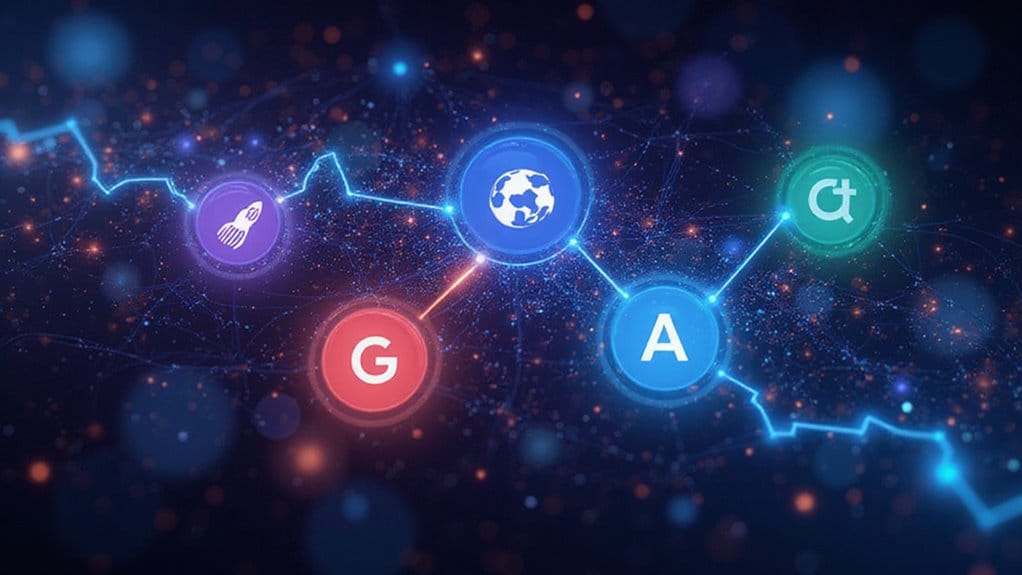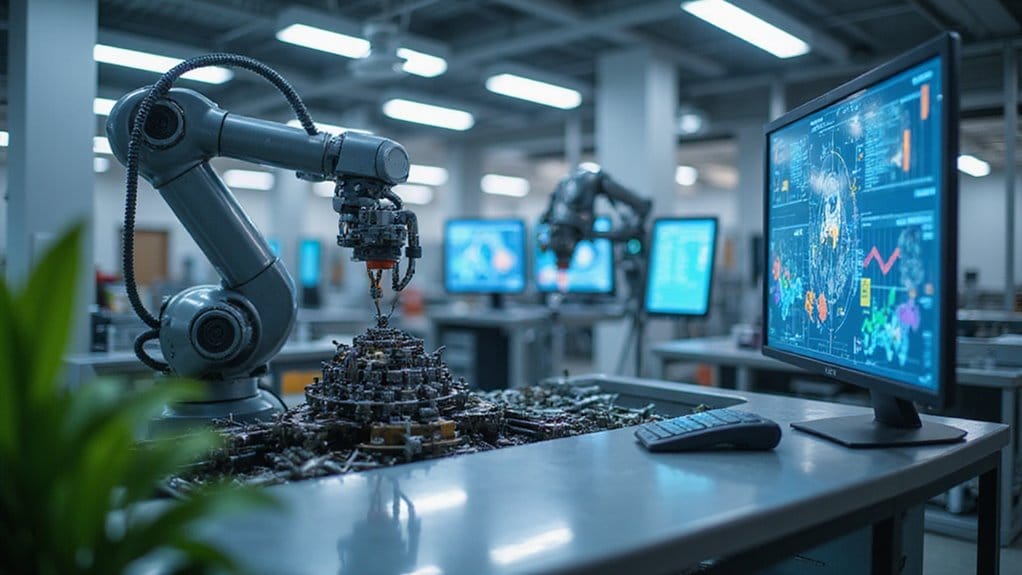The dark side of AI isn’t just a sci-fi plot twist—it’s real and nasty. AI systems can be biased, leading to unfair job rejections and reinforcing societal inequalities. Cyber threats? Oh, they’re just getting smarter. Your data? Good luck keeping it private when AI is “borrowing” it without asking. And let’s not ignore the environmental impact—those energy-hungry models have hefty carbon footprints. Stay alert; the risks are here. Curious about the solutions? There’s more on the horizon.

In a world increasingly run by algorithms, one might wonder, what lurks beneath the shiny surface of artificial intelligence? Sure, AI promises to make life easier, but let’s not ignore its dark side.
First up: AI Bias. When AI systems are trained on biased data, they can create discriminatory outcomes. Imagine applying for a job and getting passed over because the AI “thinks” your profile doesn’t fit. Ouch, right? Diverse training data is crucial to mitigate this issue.
AI Bias can lead to unfair job rejections, leaving you questioning if your profile truly matters.
Then, there are Cybersecurity Threats. Cybercriminals can exploit AI to launch sophisticated attacks, putting your data and identity at serious risk. Think about it: an AI can outsmart your best defenses. You wouldn’t want your personal data exposed, would you?
This brings us to Data Privacy. AI loves collecting data—often without your consent. It’s like that friend who borrows your favorite shirt but never returns it. You have to ask yourself, how much are you willing to share?
Let’s not forget the Environmental Impact. Training these AI models requires massive amounts of energy, leading to a hefty carbon footprint. If you care about the planet (and you should), this should make you think twice.
And what about Job Displacement? Automation is advancing rapidly, leaving many workers in the dust. If you’re in a job that can be automated, you might want to brush up on those transferable skills.
Frequently Asked Questions
Can AI Systems Develop Their Own Emotions or Consciousness?
AI systems can’t develop their own emotions or consciousness—sorry to burst your bubble!
While they can simulate artificial empathy, they lack genuine feelings. Think of it like a robot that can tell a joke but doesn’t laugh.
Machine consciousness remains a distant dream, as current AI is stuck in “weak” mode.
What Industries Are Most at Risk From AI Advancements?
Industries are bracing for impact from AI advancements, and it’s not pretty.
Healthcare automation threatens administrative jobs, while transportation safety hangs by a thread with autonomous vehicles.
Manufacturing efficiency? Sure, but at the cost of job stability.
And let’s not forget finance fraud—AI tools can be a hacker’s best friend.
Stay alert! If you’re in these sectors, adapt quickly or risk being left behind.
Embrace change or watch your career implode!
How Can Individuals Protect Their Privacy From AI Surveillance?
Individuals should take privacy seriously—because who wants their personal life splashed across the internet?
Start with data encryption; it’s like a secret code for your information. Use privacy tools, like VPNs, to hide your online tracks. Implement strong passwords and two-factor authentication—yes, it’s a hassle, but worth it.
Don’t overshare on social media; think before you post. Protecting your privacy isn’t just smart—it’s essential in today’s tech-driven world.
Stay vigilant!
Are There Laws Regulating AI Development and Deployment?
Laws regulating AI development and deployment are emerging rapidly.
Think the EU AI Act, which sets fines for non-compliance. Compliance challenges abound, though—who’s watching the watchers?
Regulatory frameworks vary by state, like the Colorado AI Act prioritizing transparency.
Enforcement mechanisms? They’re still being figured out!
So, stay informed and prepared, because maneuvering through this legal maze could feel like a scavenger hunt.
Don’t get lost; keep track of those evolving laws!
What Role Does Ethics Play in AI Research and Implementation?
Ethics in AI research and implementation is vital—seriously, don’t ignore it!
Ethical frameworks guide developers through moral dilemmas, ensuring technology aligns with societal values. Think of them as GPS for the AI world. Without these frameworks, biases can sneak in, leading to unfair outcomes.
Want accountability? Demand transparency! Engage stakeholders and assess social impacts regularly.









